Scale up National Single Registry to enhance social protection — ICRW report
Women tell ICRW researchers what they want is fairness, accountability, and dignity in accessing social protection programmes.
From left, ICRW's Kirabo Suubi, gender ministry's Hajji Idi Mubarak Mayanja and ICRW's Venantius Bbaale Kirwana interact at an ICRW Dissemination Event at Sheraton Hotel, Kampala on August 27, 2025. (Credit: ICRW)
____________________
GENDER & SOCIAL PROTECTION
When Uganda launched the National Single Registry (NSR) for Social Protection on February 4, 2021, the aim was clear: provide a common platform to consolidate essential information on beneficiaries of social protection programmes.
Previously, information would be duplicated and resources wasted because the different management information systems developed to support the administration and management of social protection programmes had ended up working in silos.
Inevitably, this resulted in limited impact of these interventions on beneficiaries.
Seen as a remedy to this challenge, the NSR would be the central point for important information on all social protection programmes in Uganda for the benefit of all stakeholders.
Four years down the road, there are renewed calls to scale up this registry so as to point stakeholders to relevant, specific information on social protection efforts to ensure fairness and wider impact.
"There are times when one person is a beneficiary of a number of [social protection] programmes while leaving out other persons who have not benefited at all," said Kirabo Suubi, a research scientist at the International Centre for Research on Women (ICRW).
Suubi (pictured below) said this while presenting the key findings from a ICRW study on the social protection measures that are effective for women in Africa. Specifically, the organization conducted primary research in Uganda and neighbouring Kenya to investigate women's experiences and preferences with relation to these social protection programmes.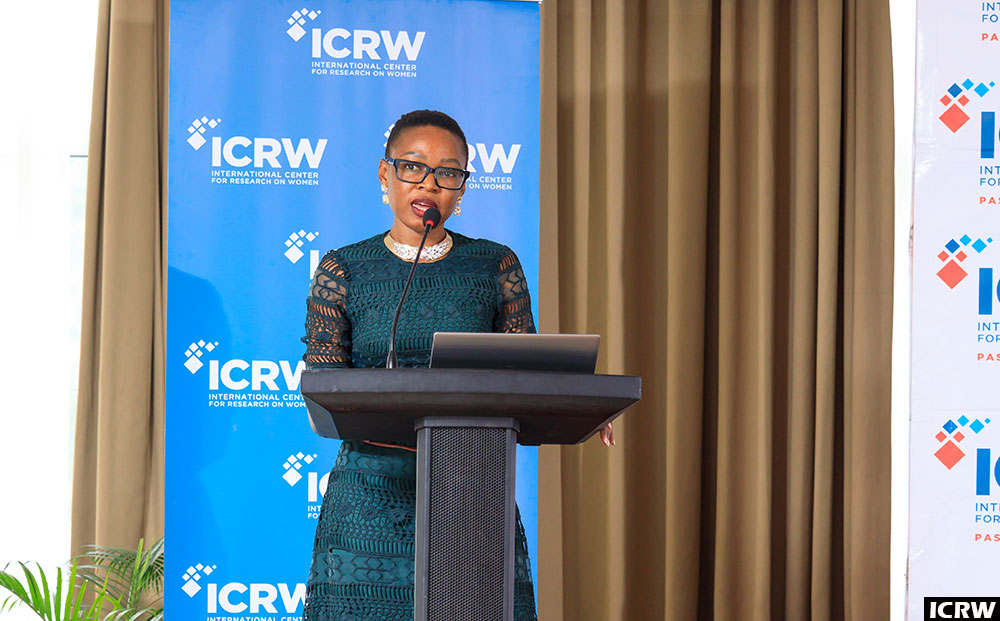
The research dissemination event on what works for advancing gender-responsive and transformative social protection took place on Wednesday (August 27) at Sheraton Hotel in Kampala.
The researchers found that many women face "real and frustrating barriers" in the social protection context.
Challenges ranging from complex registration processes and limited awareness of what social protection programmes even exist, to corruption and favoritism that block fair access as well as hidden costs of social protection.
In Uganda, social protection is recognized as a fundamental right and a key pillar for advancing national development and social justice. Beyond the 1995 constitution, other key policy frameworks have been put in place in this regard: the National Social Protection Policy of 2015 and the Social Protection Strategy of 2024.
Social protection encompasses policies and programmes designed to safeguard individuals and families from risks, vulnerabilities, and potential hardships throughout their lives. In reality though, not everyone gets access to these essential lifelines.
Women in informal settlements and rural areas, and those in vulnerable jobs who don't benefit from cash transfers, healthcare support or employment schemes are often left behind.
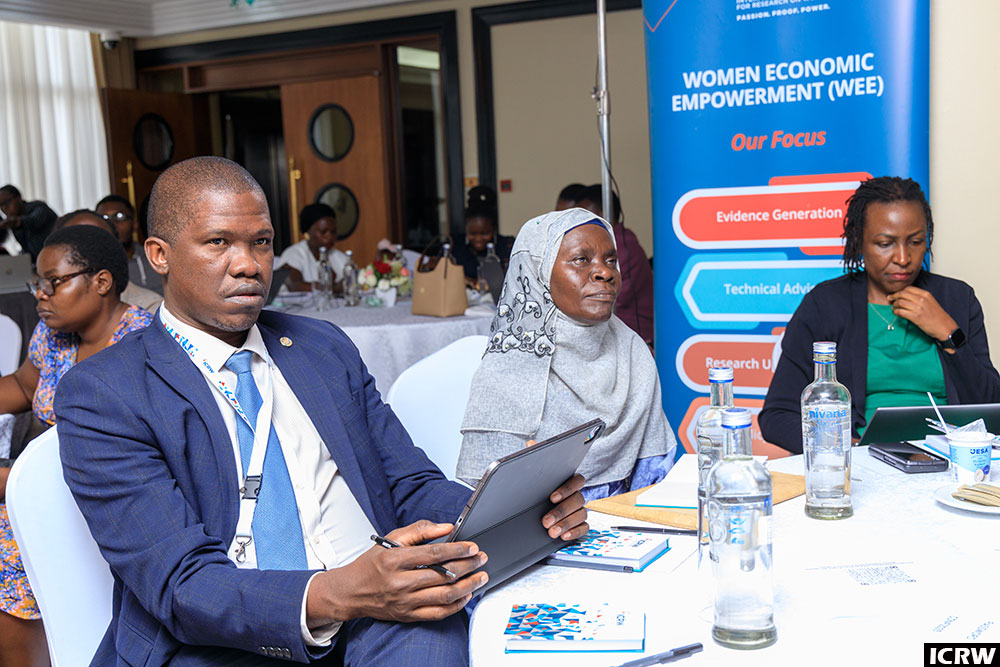
While Uganda's Annual Report on the State of Social Protection (ARSSP) for 2023/2024 highlighted strides in social safety nets, it also identified obstacles such as underfunding and gaps in coverage. The need for stronger, inclusive systems especially for vulnerable categories of Ugandans is emphasized.
As of 2024, only 6.2% of Uganda's population of more than 45 million people had received at least one social protection benefit. And only 2.5% of the population had health insurance coverage.
From their latest study, the ICRW researchers placed the enhancement of the National Single Registry at the top of their recommendations list.
Chryspin Afifu (pictured below), a gender and women's economic empowerment specialist at ICRW, spoke of the importance of scaling up this platform.
"Any other partner who has to come through and wants to use the database to advance any social protection mechanisms or initiatives will be able to draw from there," he said. "And that would avoid, for example, double targeting".
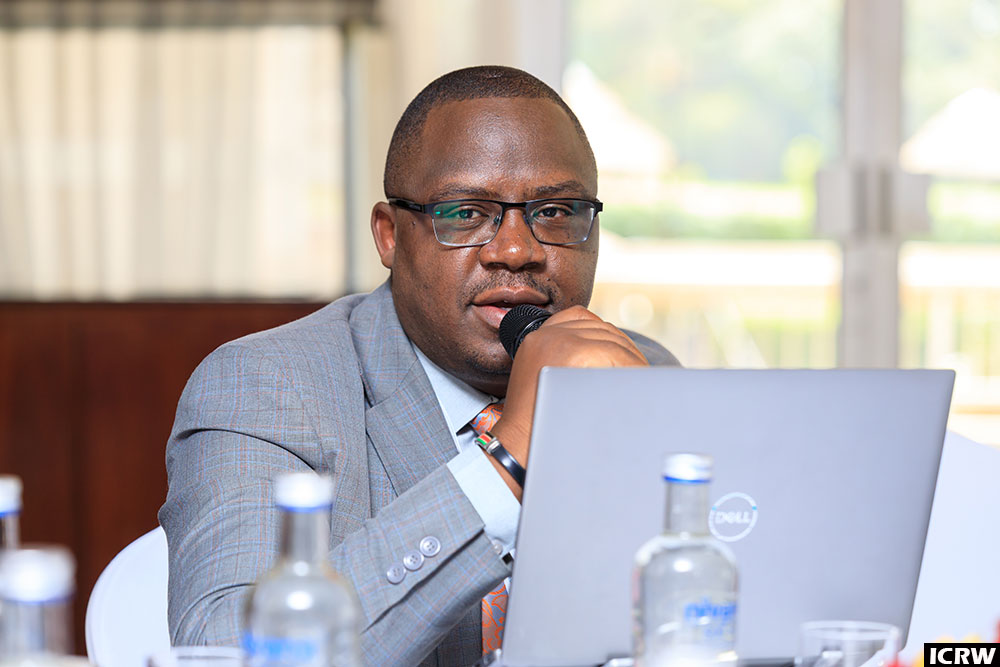
According to Afifu, mechanisms in place would ensure that if it is a cash transfer for instance, the money goes to those that are in need so they benefit and thrive.
"These mechanisms would be so responsive to the individual needs. The ministry, in this case, would have a categorization to help even those that are coming to intervene to get to know which kind of programmes they would need to implement and for what purpose."
'We are committed'
At Wednesday's session, the government responded by, first of all, expressing its appreciation for this ICRW-commissioned study, and in the same spirit, also admitted and emphasized the need to scale up the NSR.
Hajji Idi Mubarak Mayanja (pictured below), the principal women in development officer at Uganda's gender ministry, admitted that despite the existence of various social protection interventions, "we are not yet there".
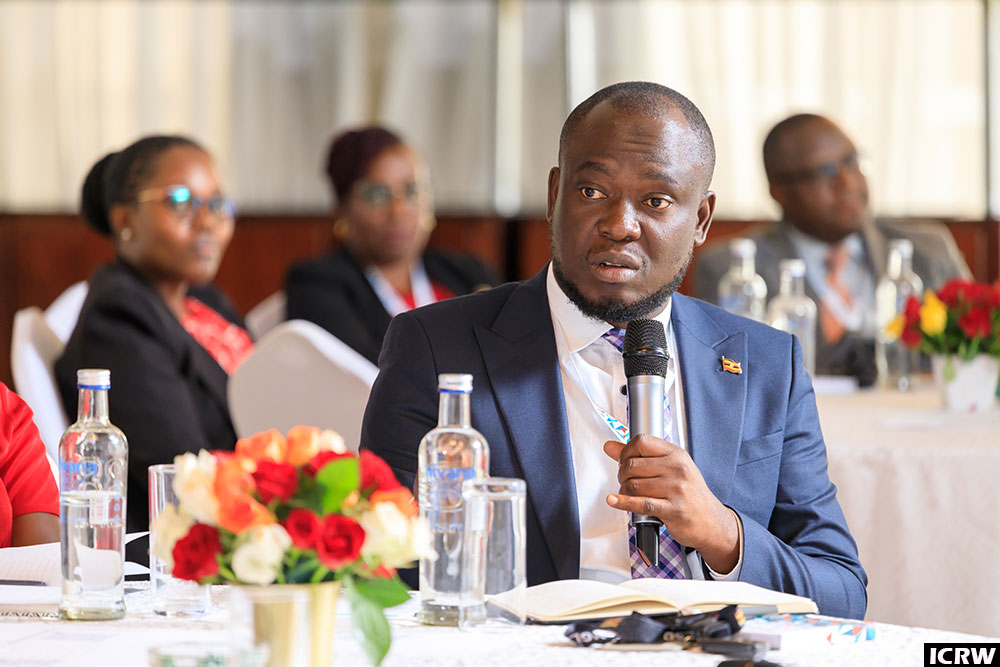
Mayanja said as a ministry, they have had "a number of engagements and studies" on the scaling up of the registry.
"In terms of commitment, we have started accelerating this [in this financial year]...We have put all our feet on this."
He also said that having made a business case for the enhancement of the NSR, the government and finance ministry said they "are willing to fund it".
The ICRW study was conducted from September 2023 to this year, with the researchers collaborating with institutions such as the National Planning Authority (NPA), Equal Opportunities Commission, Uganda Parliamentary Forum on Social Protection, Economic Policy Research Centre (EPRC) and the gender ministry.
The research focused on women in rural areas, single mothers, widows, elderly, unemployed, women with disability.
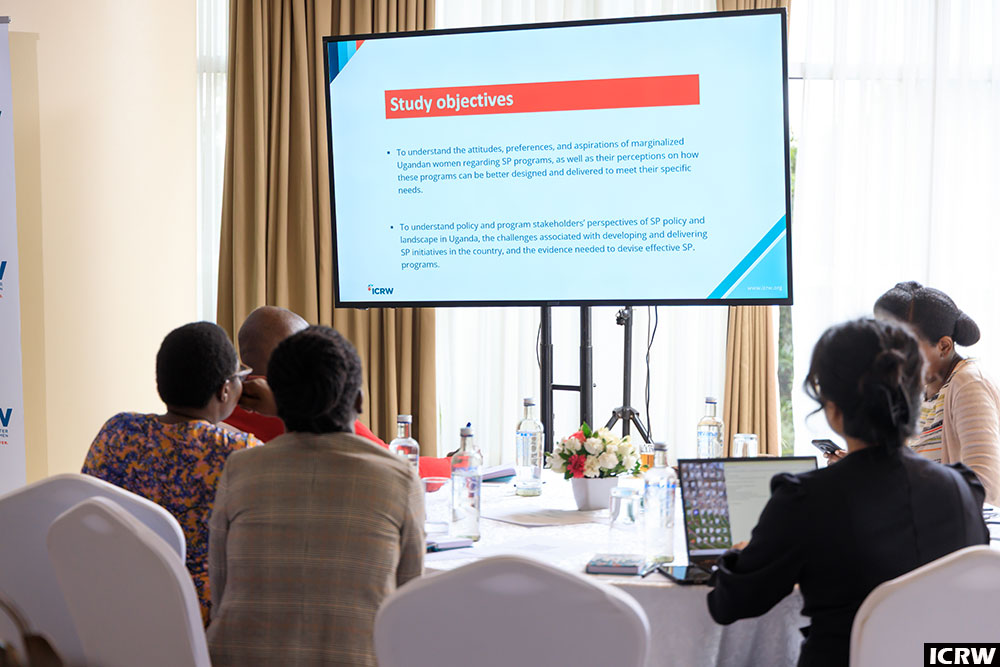
Most women said they had learned about social protection initiatives informally — through friends, local leaders, or word of mouth — rather than formal channels.
And while some women perceived social protection as a right and entitlement, others thought of it as a charity or a discretionary favour from the government or charity organisations.
At an ICRW roundtable discussion on the state of social protection in Uganda in February this year in Kampala, High Court advocate Moses Segawa (pictured below, L) said the barriers of social safety are not legal but instead structural.
"We have to know that our economy is an informal economy; it is subsistence and informal. But these [legal] instruments are all assuming that we are in the formal," he said then.
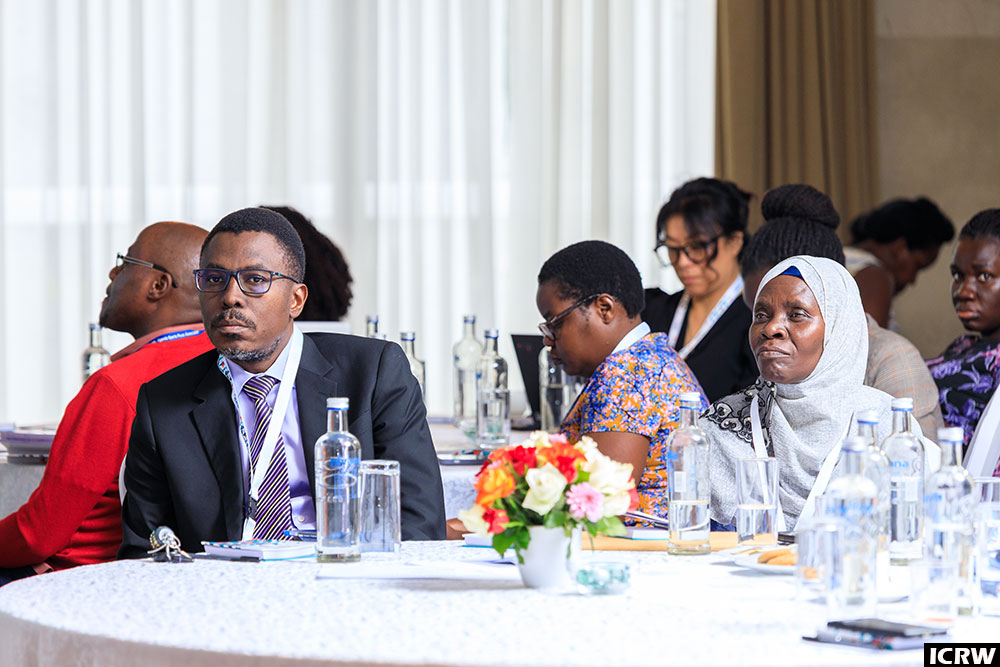
"So we are legislating for the formal sector but the economy is people in subsistence agriculture and informal sector and they are compeletely outside the social security safety net," added Segawa.
In the latest study, the women said what they want is fairness, accountability, and dignity in accessing social protection programmes. They want programmes that include everyone, especially those in vulnerable and marginalized groups.
They also urged improved transparency in selecting beneficiaries and stronger systems to reduce corruption, for instance surprise visits, community oversight and feedback hotlines.
Many stressed the need to improve healthcare and education services as part of social protection.
Additionally, they want cash aid linked with real economic opportunities such as skills development, business training or job placement, so they can build long-lasting financial security.
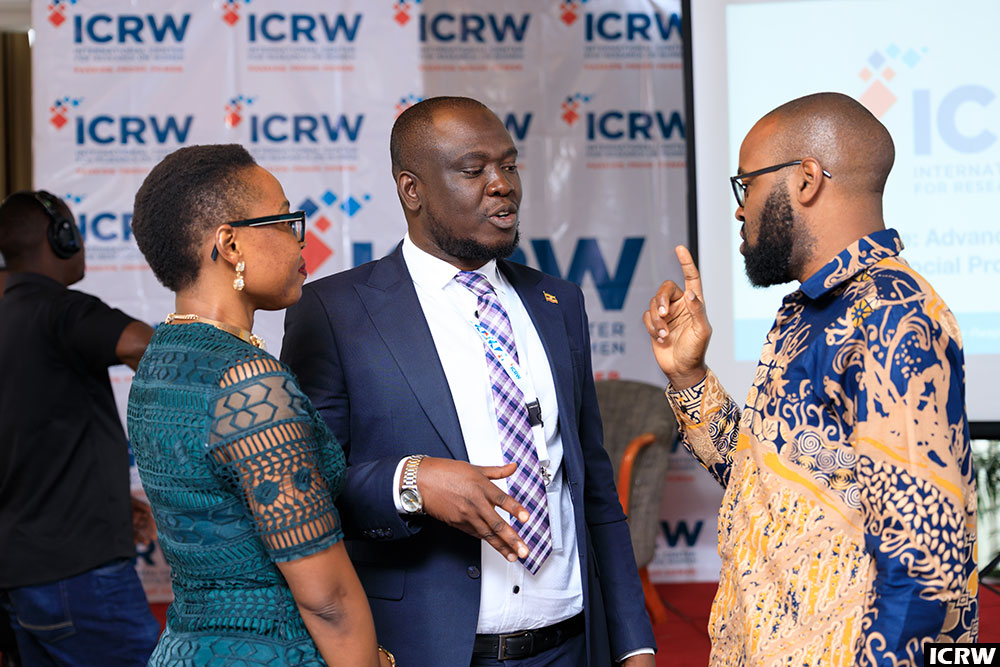
On their part, besides the scaling up of the National Single Registry, the researchers also recommended investment in multi-method and participatory data collection, data disaggregation, and date-sharing protocols among actors in Uganda’s social protection landscape.
They are also urging regular update of poverty and vulnerability assessments and indicators.
Another recommendation is developing and enforcing a legal social protection framework and regulatory standards to ensure consistency, coordination, transparency and accountability across all actors.
They also recommended implementation of life-course, holistic and multisectoral social programmes that address the intersectional needs of citizens and communities.
Ensuring long-term and robust financing and fiscal sustainability of social protection programmes is also recommended.
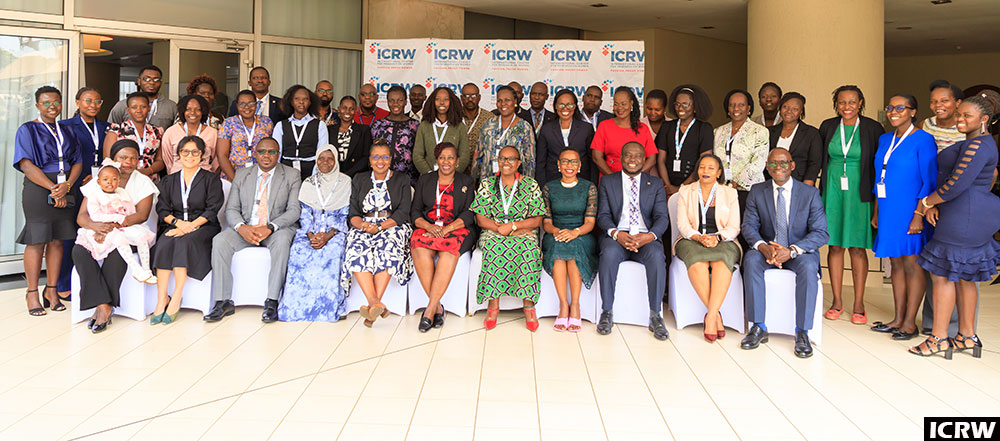
_________________________
💬 Social protection is a moral imperative
| Jacqueline Asiimwe, member of ICRW's Global Board of Directors
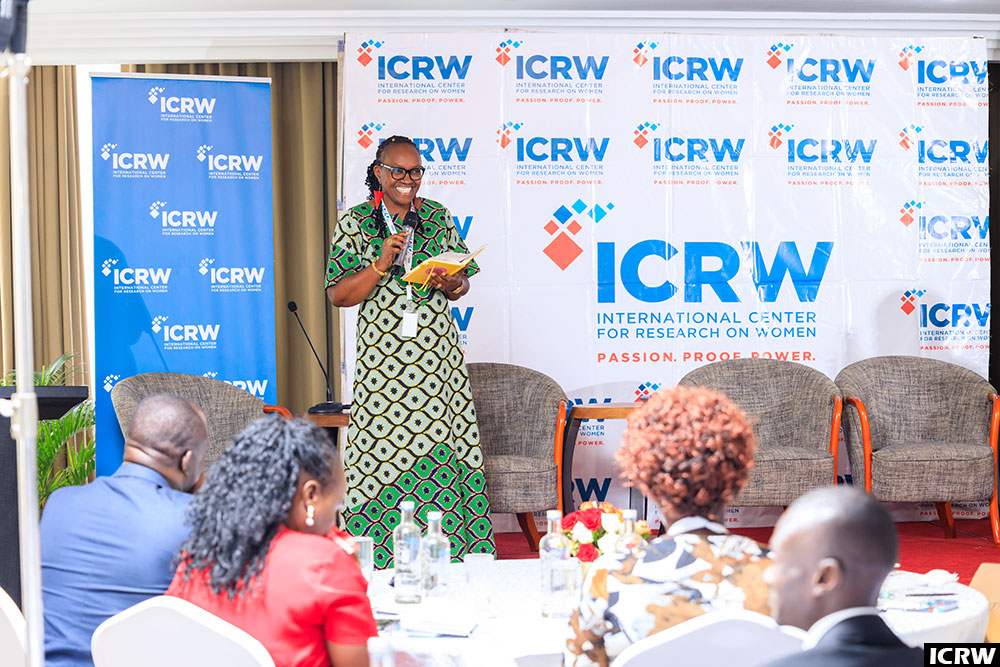
❝Across Sub-Sahran Africa, social protection systems remain largely gender-blind, overlooking the unique vulnerabilities and roles of women in care, informal work and household resilience. To ensure that social protection interventions promote inclusive and transformative outcomes, gender responsiveness must be at the core of their design and implementation.
Despite significant strides, our nation faces profound challenges that demand immediate action to addressing women's aspirations for reform to ensure that social protection interventions promote inclusive, transformative outcomes.
Social protection is not just a policy preference. It is a moral imperative and a catalyst for sustained development.
We stand at a critical juncture where decisive action can transform lives and propel our nation towards a more equitable future. We believe that gender transformative livelihoods are not only essential for development, but also beneficial for business and society as a whole.
Together we have the expertise, influence and responsibility to make meaningful change. This pivotal event is more than just a discussion; it is a catalyst for action. We must collaboratively identify the gaps, harness opportunities and implement solutions that will strengthen social protection systems in Uganda.
Let us work together to ensure that social protection becomes a reality for all Ugandans, especially the most vulnerable.